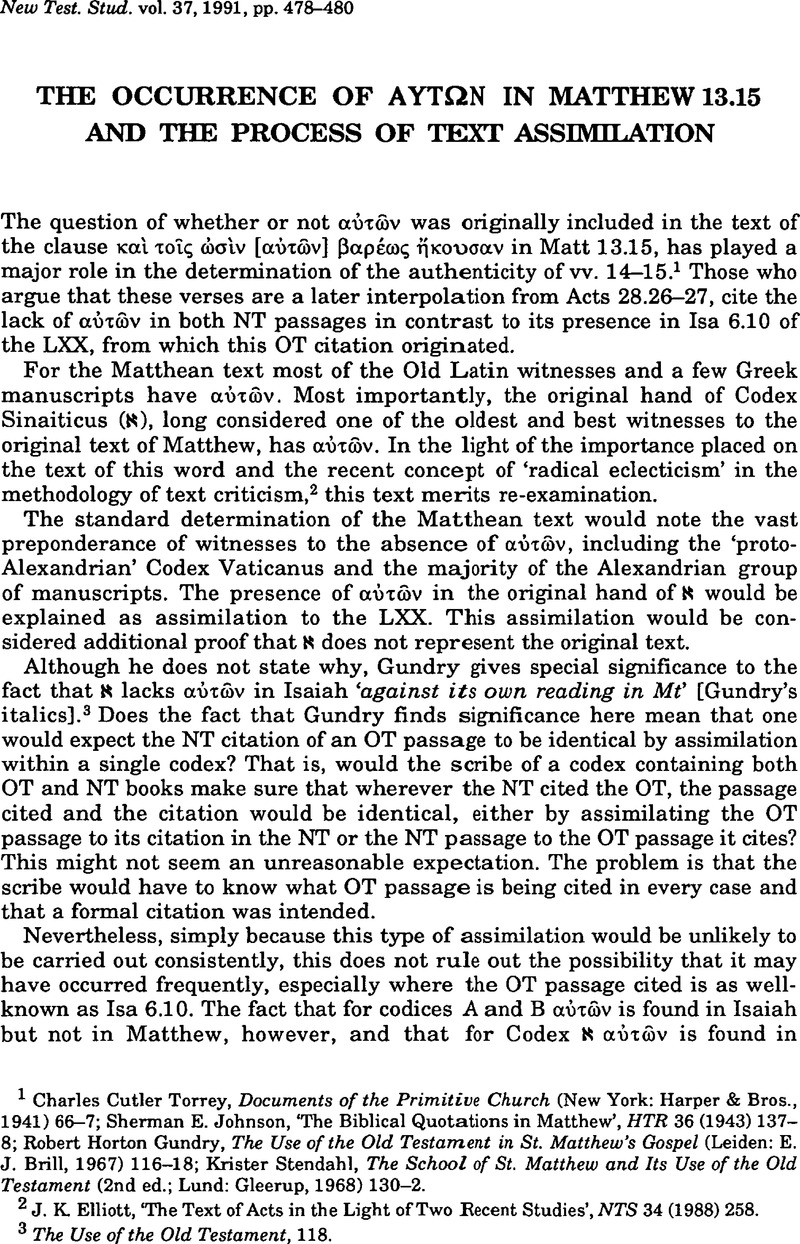No CrossRef data available.
Article contents
The Occurrence of Aytωn in Matthew 13.15 and The Process of Text Assimilation
Published online by Cambridge University Press: 05 February 2009
Abstract

- Type
- Short Studies
- Information
- Copyright
- Copyright © Cambridge University Press 1991
References
1 Torrey, Charles Cutler, Documents of the Primitive Church (New York: Harper & Bros., 1941) 66–7Google Scholar; Johnson, Sherman E., ‘The Biblical Quotations in Matthew’, HTR 36 (1943) 137–8CrossRefGoogle Scholar; Gundry, Robert Horton, The Use of the Old Testament in St. Matthew's Gospel (Leiden: E. J. Brill, 1967) 116–18Google Scholar; Stendahl, Krister, The School of St. Matthew and Its Use of the Old Testament (2nd ed.; Lund: Gleerup, 1968) 130–2.Google Scholar
2 Elliott, J. K., ‘The Text of Acts in the Light of Two Recent Studies’, NTS 34 (1988) 258CrossRefGoogle Scholar.
3 The Use of the Old Testament, 118.
4 Holtz, Traugott, Untersuchungen über die alttestamentlichen Zitate bei Lukas (Berlin: Akademie-Verlag, 1968) 34–6Google Scholar, believes that Luke was true to his LXX source and, therefore, αν![]() ιων could not have been in his LXX.
ιων could not have been in his LXX.
5 Septuaginta: Vetus Testamentum Graecum Auctoritate Academiae Litterarum Gottingensis editum, vol. 14: Isaias (2nd ed.; Göttingen: Vandenhoeck & Ruprecht, 1967) 32–4.Google Scholar


